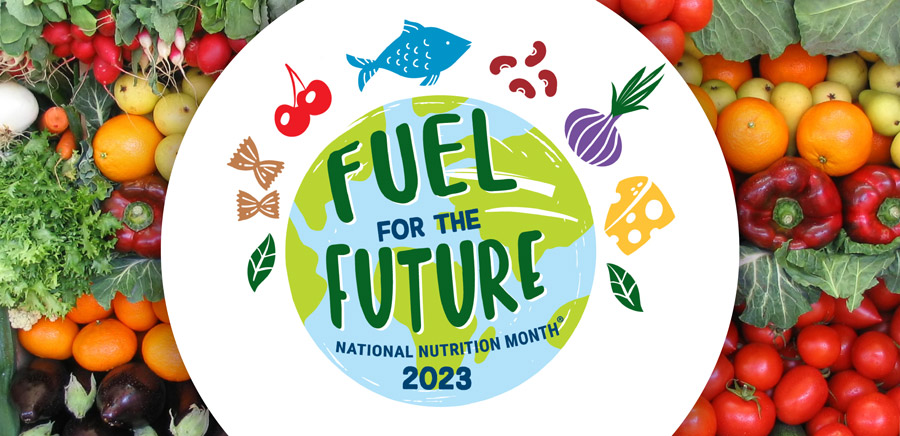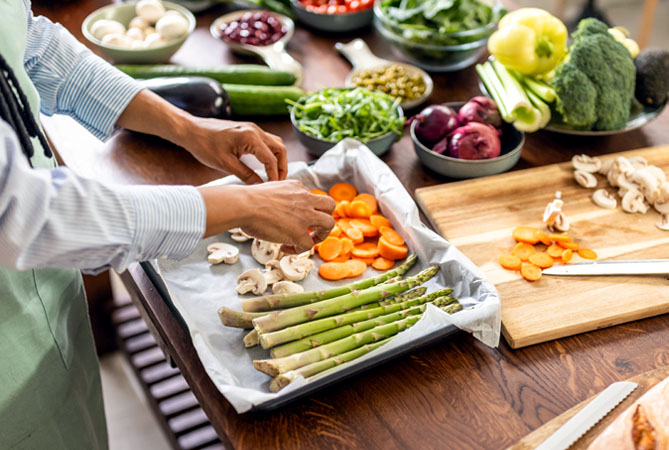
Fueling our Future
National Nutrition Month® is a yearly campaign in March created by the Academy of Nutrition and Dietetics, and this year marks its 50th anniversary. The 2023 theme is "Fuel for the Future," emphasizing the importance of fueling our bodies throughout our lifespan while also practicing sustainable eating to protect the environment.
What is sustainable eating?
Sustainable eating means eating foods that are healthy for our bodies and the environment. Think more whole foods, less processed foods. Eating less processed foods have a positive effect on the environment, our health and our lifespan. A balanced diet rich in whole foods is key, but what about meat? We should also pay attention to the sourcing of our meat. Where does it come from? Supporting local and organic farms can promote a healthier food system and reduce the carbon footprint of transportation. Eating sustainably can also support local agriculture, helping to build stronger communities.
-
Vary up your foods:
-
If you only eat beef and chicken, try eating more fish or seafood. Fish and seafood have higher amounts of omega fatty acids which protect our hearts against heart disease.
-
Try to buy produce that is in season.
-
-
Push more plants:
-
Eating more nuts, beans, fruits and vegetables have a positive effect on our bodies and the environment.
-
You don’t have to not eat meat, but simply add more fruits and vegetables to your meals like adding spinach to your morning omelet, adding beans to a soup or stew and choosing fruit as a snack over other options.
-
-
Trying growing a garden:
-
Start with a couple pots of herbs and add them to food dishes all year long.
-
Try a container garden and grow your own tomatoes, peppers and cucumbers.
-
-
Avoid wasting food:
-
How many times do we buy food and let it rot in the refrigerator?
-
Only buy what your family needs for the week or remember to freeze what is not used and eat it at another time. You can also compost food scraps to reduce landfill waste.
-
Plan meals and shop with a list to reduce food waste.
-
Sustainable eating is making small changes you may think are insignificant, but can make a huge impact over time. Think about where your food comes from? Visit a local farmer’s market for local produce, dairy, eggs and meat. Get to know the farmers who grow the food and ask questions. Let’s make sustainable eating a habit and fuel ourselves for a healthier, more sustainable future.
Resources for sustainable eating in Mississippi:
https://agnet.mdac.ms.gov/msFarmersMarkets/FarmersMarkets




 Women's Health
Women's Health Eat Healthy
Eat Healthy Exercise
Exercise Health & Wellness Articles
Health & Wellness Articles